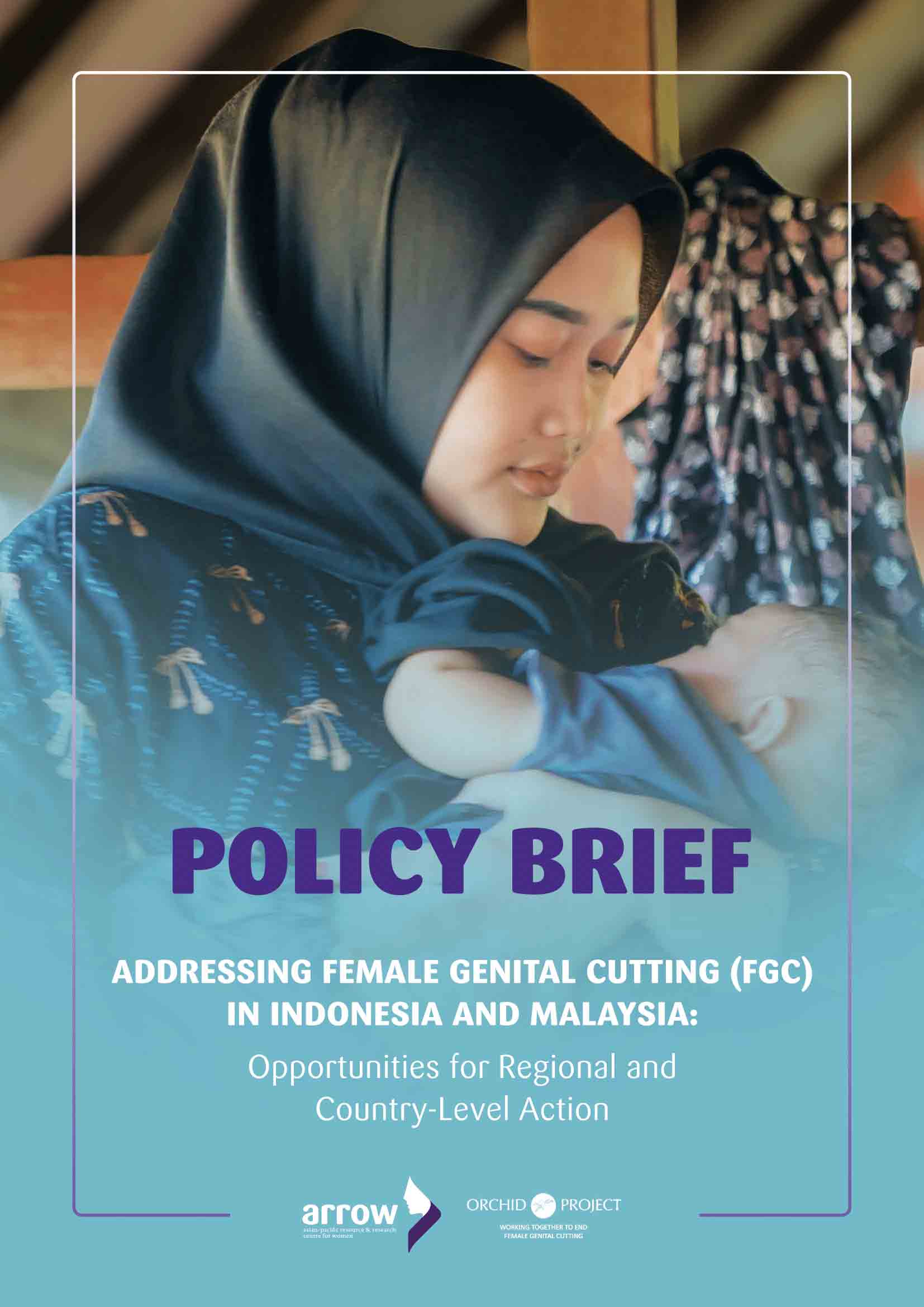Female Genital Cutting (FGC) is internationally recognised as a grave violation of human rights, impacting the sexual and reproductive health and rights of women and girls. Globally, 230 million women and girls across 90 countries have been subjected to FGC, with Asia accounting for an estimated 35% of this burden, or about 80 million cases. Indonesia and Malaysia together account for more than one-third of Asia’s total, with approximately 70 million affected in Indonesia and 7.5 million in Malaysia. Despite the scale, FGC remains under-researched, under-addressed in national policies, and often normalised through cultural traditions, religion, and healthcare practices. This study examines the practice of Female Genital Mutilation/Cutting (FGM/C) in Indonesia and Malasia as part of a wider study across Southeast Asia. It explores the prevalence, trends, drivers, norms, and barriers to change associated with FGM/C. The research includes detailed case studies conducted within selected communities to provide localised insights and contextual understanding.
What does it include? Key highlights
The brief covers the prevalence and drivers of FGC in Indonesia and Malaysia, alongside policy and legal gaps and recommendations for reform. It finds that FGC is most commonly performed in infancy, with 70% of Indonesian girls cut before age one and a majority of Malaysian girls within their first year of life. The predominant forms are WHO Type I (removal of part or all of the clitoris or prepuce) and Type IV (pricking, scraping, cutting, or cauterising). Medicalisation is widespread, with nearly half of procedures in Indonesia and over 57% in Malaysia performed by healthcare professionals, lending legitimacy to the practice. Religion is a central driver: in Malaysia, a national fatwa from JAKIM declares FGC obligatory, while in Indonesia, positions are mixed, with some religious authorities recommending it and others, such as KUPI, opposing it. Legal protections remain weak; Indonesia passed a 2024 regulation banning FGC but lacks enforcement mechanisms, while Malaysia has no specific law or cohesive policy, despite potential applicability under general criminal provisions. Data gaps also persist, with Indonesia beginning to integrate FGC into national surveys, while Malaysia relies only on small-scale academic studies.
Strategic Recommendations
Policy Action for Government and National Actors in Malaysia And Indonesia
- Establish Reliable, Comprehensive, Consistent And Standardised Data Collection
- Strengthen National Legal And Policy Implementation And Healthcare Regulation On FGC
- Promote Religious Re-Interpretation And Engagement
- Invest In Community Education And Behaviour Change
Strategic Role for the UK: Supporting Change
- Support The Operationalisation Of The 2024 Regulation Banning FGC In Indonesia
- Support Indonesian And Malaysian Civil Societies To Advance Community-Level Awareness And Behaviour Change
- Support Un Agencies Programmes In Indonesia And Malaysia
- Support And Leverage Human Rights Mechanisms That Call For The Elimination Of FGC
Regional Recommendations on Policy Priorities for Governments, Human Rights, and Development Partners
- Leverage the Beijing +30 and ICPD commitments, which explicitly call for the prohibition and elimination of FGC.
- Support regional platforms and align stakeholders to advance shared goals on gender equality and the elimination of harmful practices such as FGC.
- Leverage international human rights treaties to reinforce norms and standards that advocate an end to FGC, particularly CEDAW and CRC.
- Strengthen international and regional partnerships with agencies such as ASEAN, WHO, and UNESCO, and engage actively to ensure that FGC is integrated into broader gender equality and child protection agendas.
- Support regional medical and midwifery associations in developing and promoting professional guidelines that explicitly oppose the medicalisation of FGC.
Download the Policy Brief here.
Conclusion
FGC in Indonesia and Malaysia persists due to cultural norms, religious justifications, and medicalisation, compounded by weak legal frameworks and limited data. Ending the practice requires coordinated action across law, healthcare, religion, and communities, alongside stronger data and regulation. Progress is possible through promoting religious reinterpretations that challenge the perception of FGC as obligatory, de-medicalisation, and support from civil society, governments, and international partners to shift norms and protect women’s and girls’ rights.
About ARROW
ARROW is a regional non-profit women and young people’s organization based in Kuala Lumpur, Malaysia. It was established in 1993 upon a needs assessment arising out of a regional women’s health project, where the originating vision was to create a resource center that would ‘enable women to better define and control their lives.
About Orchid Project
Orchid Project is an international NGO, with offices in Nairobi and London, working at the forefront of the global movement to create a world free from FGM/C. At the heart of our mission are grassroots organisations that are pioneering change, and by working together, one step at a time, we believe we can help to end FGM/C globally.
About the Asia Network to End FGM/C
The Asia Network to End Female Genital Mutilation/Cutting (FGM/C) is a group of civil-society actors, led by ARROW and Orchid Project, working across Asia to end all forms of FGM/C. It does this by connecting, collaborating and supporting Asian actors and survivors to advocate for an end to this harmful practice. The Network comprises almost 100 members across 12 countries in the Asia region. Members are activists, civil society organisations, survivors, researchers, medical professionals, journalists and religious leaders, who are committed to working collaboratively together to promote the abandonment of all forms of FGM/C across the Asia region.


